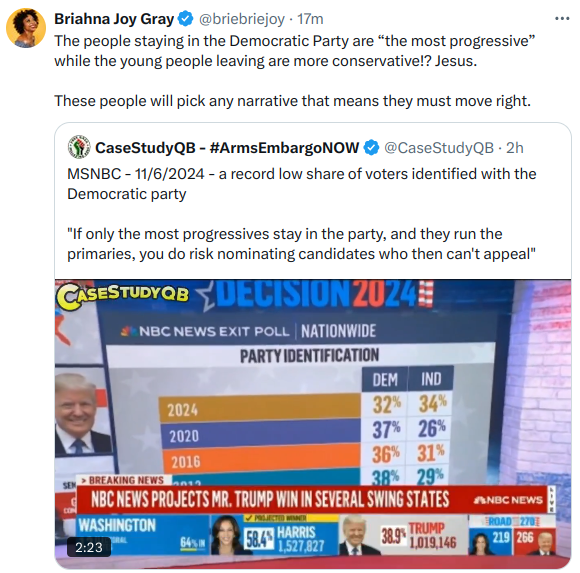this post was submitted on 06 Nov 2024
328 points (93.9% liked)
People Twitter
5173 readers
2241 users here now
People tweeting stuff. We allow tweets from anyone.
RULES:
- Mark NSFW content.
- No doxxing people.
- Must be a tweet or similar
- No bullying or international politcs
- Be excellent to each other.
founded 1 year ago
MODERATORS
you are viewing a single comment's thread
view the rest of the comments
view the rest of the comments

Here’s how I put it elsewhere in this thread:
You have two choices, one is to poison a town’s water supply without telling them.
The other choice is poisoning the town’s water supply, not telling them, and then shooting the survivors as they flee the town.
No question that slaughtering fleeing survivors is worse. But either way, you’re being asked to sign your name to poisoning innocent people.
You can only see “you’re voting for slaughtering fleeing townspeople!” But plenty of people cannot stomach voting for poisoning the townspeople in the first place.
You’re both looking at the same situation but seeing different elements.
The nuance comes in here: both are valid stances to take. If you don’t vote “against” shooting the survivors, there’s a greater chance survivors will be shot. But voting for the people poisoning the water supply is untenable for many, and not understanding why that is, is a huge problem.
But they are not doing anything against that by abstaining from voting. They are still giving their consent to the poisoning, just by doing nothing instead of doing something, that is literally the only difference.
My whole point is that the "inaction is better than action" bias when evaluating options is bizarre to me.
Edit: https://en.wikipedia.org/wiki/Omission_bias seems to be the term used for the phenomenon.